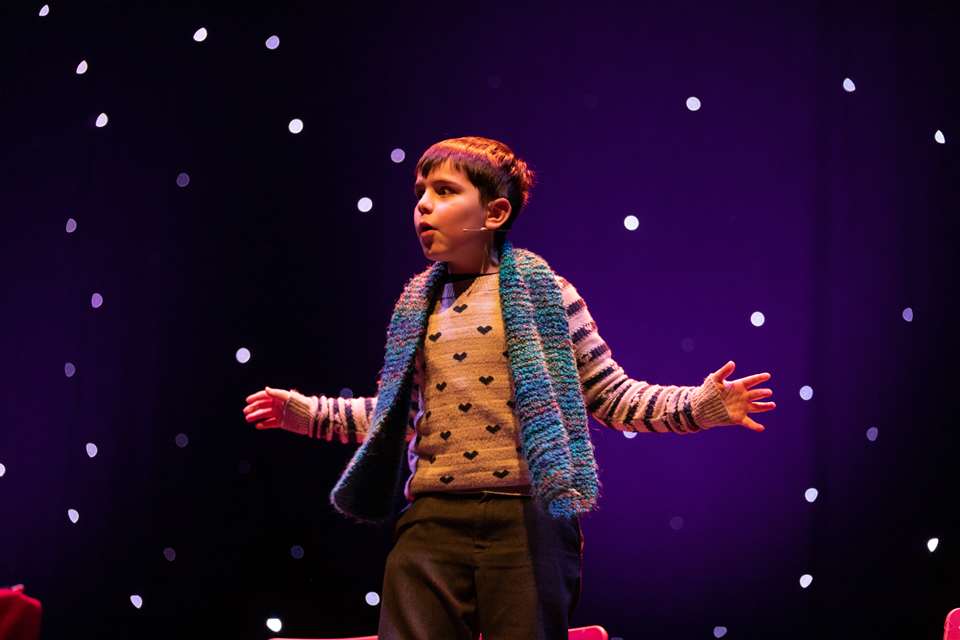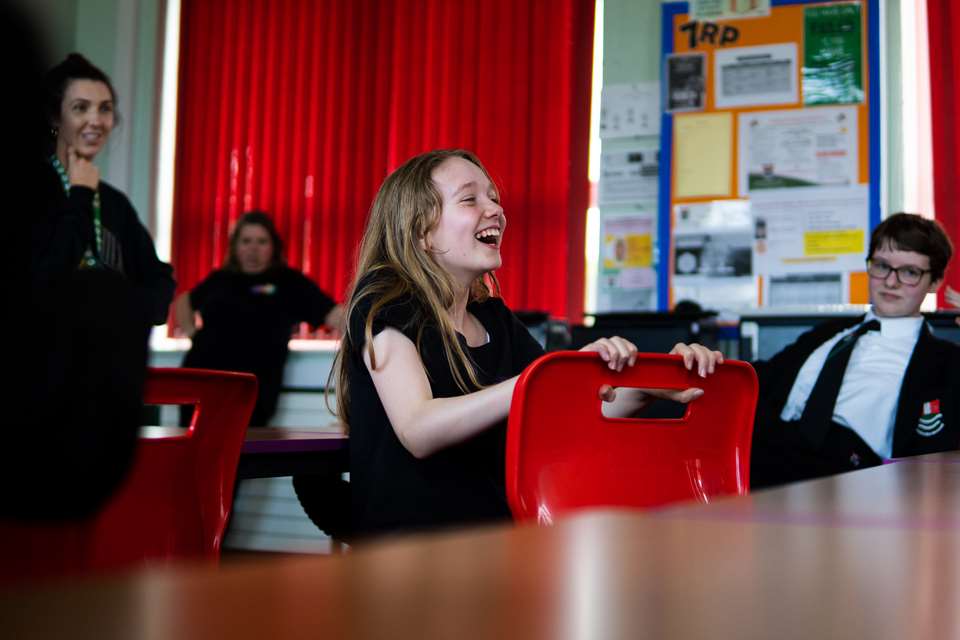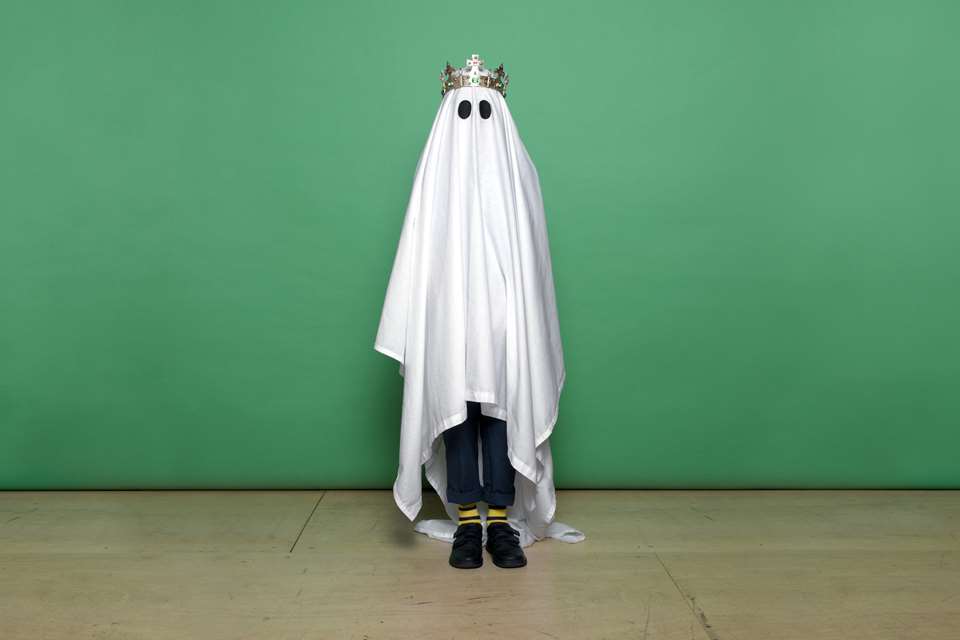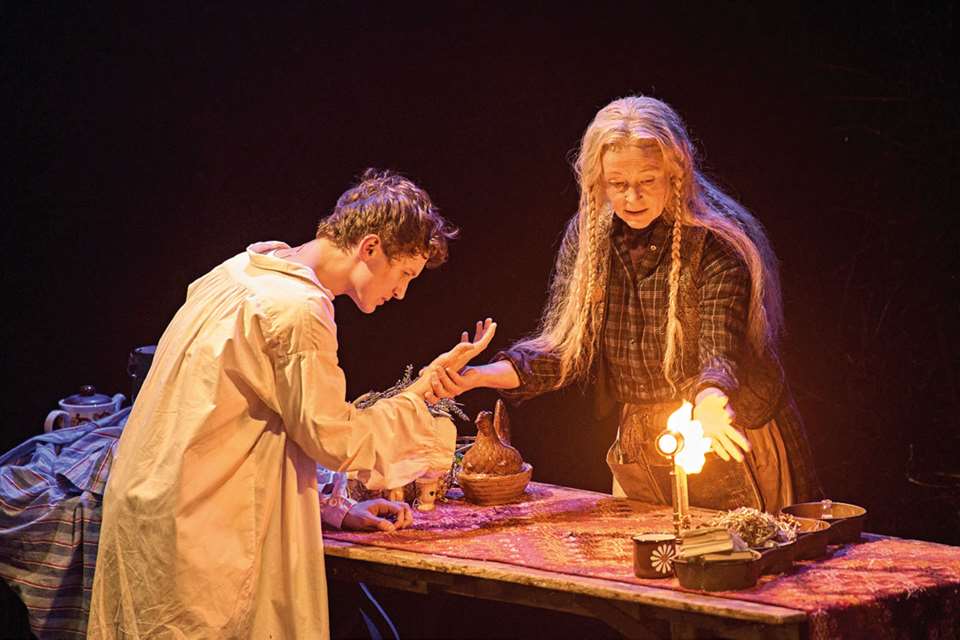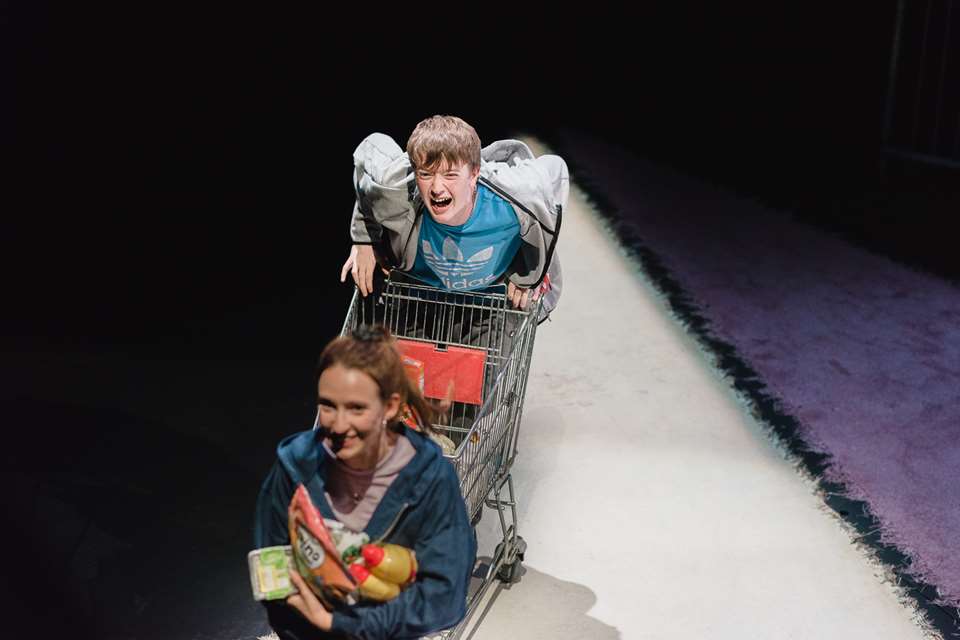Loud and clear: National Theatre's Speak Up programme
Hattie Fisk
Saturday, October 1, 2022
Uniting local artists with young people, teachers and venues across the country, the National Theatre's Speak Up programme is establishing a cycle of collaboration that it hopes will remain long after the three-year project comes to an end. Hattie Fisk speaks to those involved to find out more
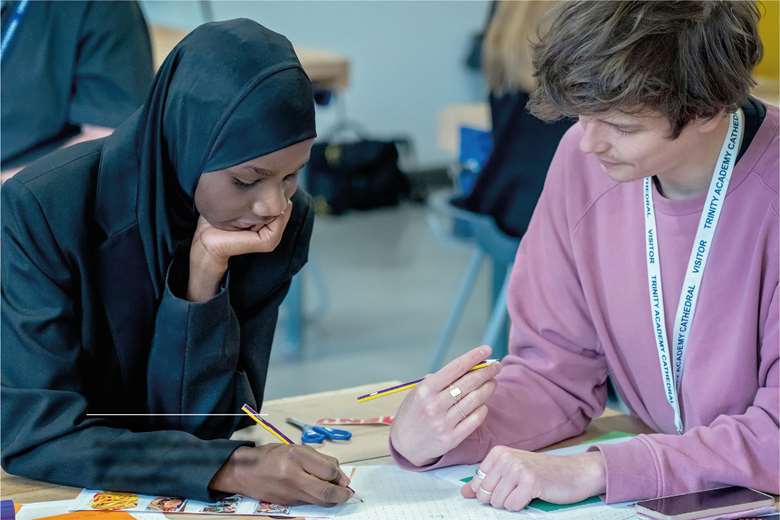
If there's a famous actor or artist who comes from the same place or background as you, chances are you'll look up to them. Young people can be hugely inspired by arts trailblazers from their own communities. Recognising that regular artist-student collaboration is rare, the National Theatre's (NT) Speak Up programme hopes to kickstart partnerships between schools and creatives up and down the country.
Speak Up's mission is to nurture students who have been particularly impacted by the pandemic through the arts, helping them be creative, collaborate and learn new leadership skills. Following a successful pilot scheme, 40 schools are now taking part in the new four-way partnership between teachers, artists, young people and arts venues.
Cultivating creativity
Verbatim theatre company LUNG is a creative associate on the project. The company's artistic director Matt Woodhead also came on board at Speak Up as one of the associate artists in a school in Wakefield. ‘Speak Up is about empowering young people to have tools and vocabulary to be able to lead creative projects,’ he explains. Artists are encouraged to provoke conversations to support young people to make the work they want to make. At this school in Wakefield, students put together two short films, a visual arts exhibition and an audio installation – things that Woodhead would never have guessed were possible from the outset.
‘I feel like there are a lot of myths about what young people need and what they don't need in the drama classroom,’ he says. ‘From this project, I have found that once they are given the resources to play and create, they will absolutely fly.’
Each session can be steered towards the specific interests of those involved, whether that's producing digital content, dance or traditional theatre. As the name suggests, the workshops encourage all students to speak up and voice these creative desires.
A broad impact
It is widely acknowledged that the provision of drama is patchy across the UK, particularly in rural or deprived areas. As a result, this experience was entirely new and unique for many students involved. One such project that Woodhead was involved with was a short film about mental health called The Chimp in my Brain, in which students took a monkey outfit around different areas of Wakefield. Lots of the rehearsal time was spent discussing the foundations of this topic with the students, evolving their concept and providing them with the autonomy to steer the film in the direction they wanted to.
In Wakefield the impact of this project trickled into the local community, with students getting footage from 10 different locations around the city, from newsagents and chicken shops to cathedrals. ‘It was amazing to see how accommodating people were,’ says Woodhead. ‘It just shows how something so small can grow and impact the wider community in such a positive way.’
Loosening the reigns
For Rachel, one of the teachers involved in the roll-out of Speak Up at Edgar Wood School in Rochdale, the project helped her return to the roots of teaching. Having found that her love of teaching had been dwindling after 13 years of focusing on assessments and exam results, she found a new-found passion for the subject. ‘You can get lost in the pressure of having a decent curriculum, positive results and outcomes, and the frustration of having to fight to have drama on the curriculum in the first place. I had forgotten about the essence of what drama is. Fortunately, this project reignited that flame.’ This only came from her letting go of the reigns in the Speak Up workshops and allowing the students to run wild with ideas.
That is the real selling point of this scheme: teachers can introduce students to a workshop that is not being assessed in any way. What students create in that space can be thrown away at the end, or it can be saved and used in a larger creative project. Regardless of the outcome, the young people are taught how to play and create, which is something that has been missing for those who have been limited by the pandemic.
This is helped by the fact that artists often come from the same community as the students, and can therefore speak and interact on a similar wavelength. The artist that worked with Edgar Wood ‘really understood the demographic she was talking to, having lived some of the same experiences,’ says Rachel. Locality is a crucial element of the programme, as young people respond significantly better to individuals they can relate to. With promising developments on the horizon, let's hope more students get the chance to speak up in the future.
Speak Up will extend to a total of 55 schools including new areas of Leicester, Stoke and North Devon in January 2023. To find out more visit nationaltheatre.org.uk/learning/schools/speak-up


